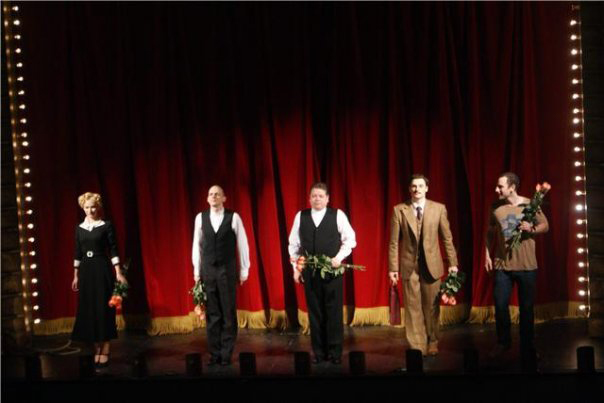
I know I am a few days late- every year on 3rd January, the Tolkein society meet to celebrate the great man’s birthday.This year, he would have been 125 years old. Older than Bilbo, then, who was Eleventy-One, 60 years after the beginning of the Hobbit. Bilbo sails west at the end of the Lord of the Rings at the age of 131. There are a few more years before that anniversary.
Three wizards occupied my childhood- Gandalf, Merlin and the wonderful Ged from Ursula Le Guin’s Earthsea trilogy (there was a fourth book added which I think is inferior). I remember being introduced to each vividly. A wonderfully kind lady on a farm nearby gave me my first edition of “the Sword in the Stone”. And it really was a first edition! At Grace Dieu, my prep school, I found “Lord of the Rings” on a shelf and devoured it, rereading and rereading it during rugby games. I trundled the book backwards and forwards on to the pitch, rain or shine, often in the snow. But Earthsea was given to me by the English master in the same school, a brilliant teacher called Mr Kingdom- one of the most inspired classroom readers, a delightful artist and simply a joy to be around. Just after we completed Common entrance, he routinely read the 4th form the whole of “39 steps”, recreating each scene and each character , anticipating by some 40 years the brilliant West end production that indeed my friend David Newman supervised and redirected in the Stanislavski theatre in Moscow a few years’ ago.

Earthsea dates from 1968 and, while of modest length, competes very well with Tolkein. It introduces the idea of a wizarding school and a nemesis in part linked to the hero, and able to subvert the will of others to do his bidding, turning them into the walking dead, the “gibbeth”, Ursula K Le Guin’s version of the Kabbalistic Dybbuk (Дибук or דִבּוּק) Is the gibbeth not a death-eater of sorts or a dementor? Indeed, in so many ways, Earthsea spawns Harry Potter. There is even a jumped up aristocratic student adversary, not called Malfoy but Jasper who taunts the young Ged into fighting a magic duel. Roke, the Hogwarts of its day is the safest place on earth. For the forbidden forest, read Immanent Grove, for familiar phoenix, read raven and for Hedwig the owl read the unnamed pet otak. the similarities are striking enough to lead to speculation about plagiarism, but frankly, given the setting of a wizarding boarding school, must of the rest follows naturally and at worst, Potter is a dumbed-down reworking of the same source material, the icelandic sagas and the Merlin stories of Arthur from which Tolkein also drew.
And while there are similarities, Ursula Le Guin always has the upper hand. Harry Ps flirtation with death as indeed Aragorn’s is fleeting really in comparison to the lengthy journeys through the land of death made by Ged. This is not about a magic resurrection, but about a mission – if there is a parallel here, it is in the Aeneid, Gilgamesh, Dante or Pullmann.
More than that, Ursula Le Guin is very much aware of following Tolkein. She writes a piece about the “Rhythmic patterns in Lord of the Rings” and looks at the “rapid reversals: darkness, light… downhill/ uphill…the fact is, we walk from the shire to mount doom with Frodo and sam. One two, left right on foot all the way.” What a brilliant observation and how true. I do not hear JKR talking about her indebtedness or admiration for either Tolkein or Le Guin. It might be interesting to know what she thinks about them and slightly less about the world she created herself. That said, I LOVED the film of “Fantastic beasts” in a way that I did not really love the previous films or stories. Maybe it was Eddie Redmayne?
What is wonderful about Ged, though and quite different to all the other wizards, including oddly Harry P, is that Ged matures and grows through the action of the books. He is tested, fails and overcomes the odds to make it to the top of the wizarding confraternity at Roke. Ged is Dumbledore with backstory. We care about Ged because we can identify with his failings in a way that we cannot care for Merlin or Gandalf or indeed Harry P. We can only sit back and admire their wondrous deeds.
I read the second book in the trilogy first, shortly after it was published in 1971 “the Tombs of Atuan” where we meet the counterpart to Ged, a woman raised to be the priestess in a dying world, honouring the fearsome shadow gods in a pitch-black underground labyrinth. No wonder that the few attempts to turn this into a film have failed.
Earthsea addresses fundamental questions. “What is evil?” someone asks. And Ged’s master Ogion says in Patristic tone, “To hear, one must be silent.” (or is that the Desert Fathers?) Magic is about preserving the delicate balance in nature so “rain on Roke may be drouth in Osskil, and a calm in the East reach may be storm and ruin in the West, unless you know what you are about.” Most of all, I love the idea that power over something lies in correctly identifying its true name. This is touched on in Tolkein when Gandalf is struggling to open the door to the Misty Mountains, but it is embroidered throughout the Earthsea books, from the identity of the shadow to the name of the dragon of Pendor. Language is magic. Words are a force in themselves because they are an attempt to identify and empower the things around us.

